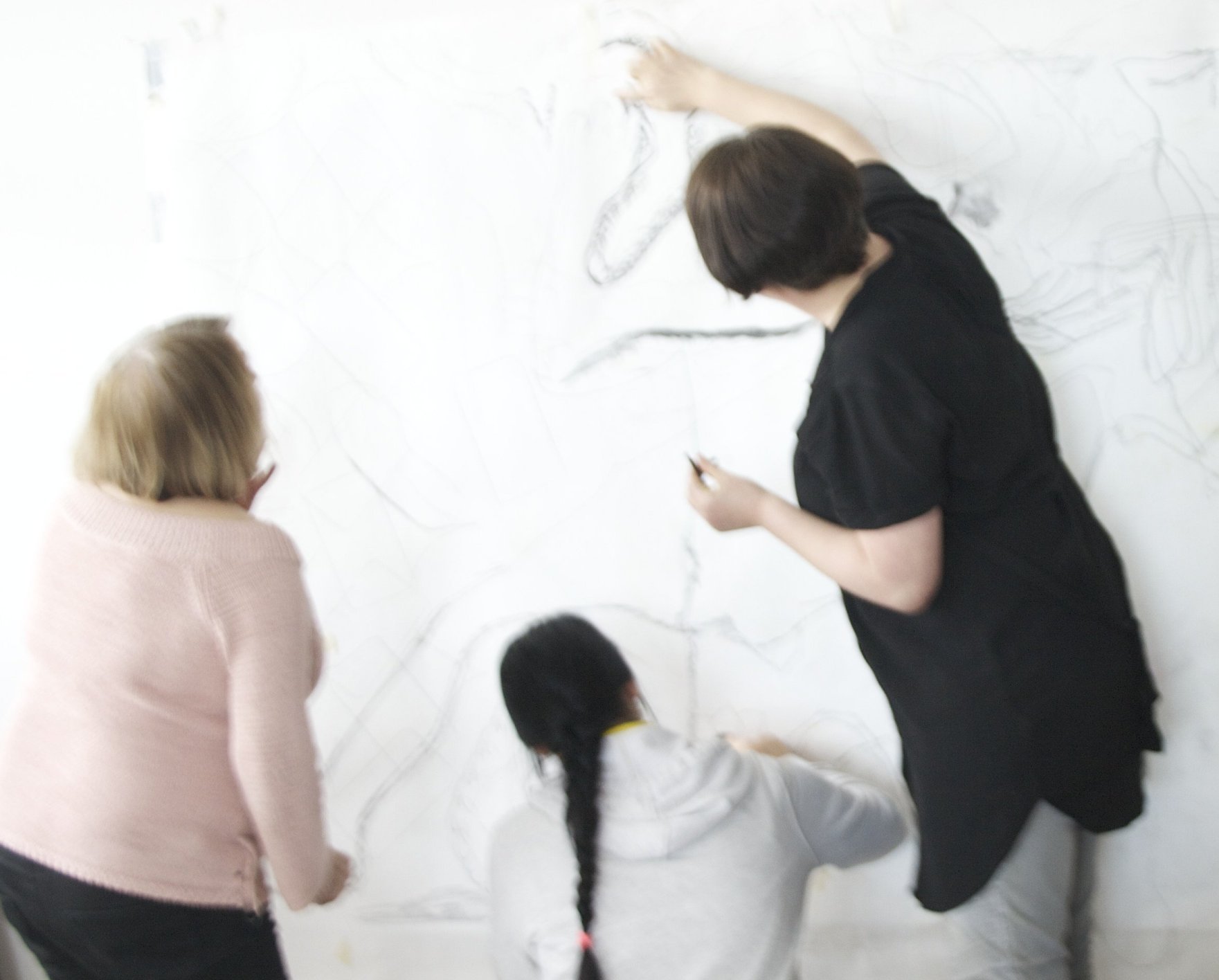
Participants in the Equal Arts project
A career path for creative facilitators
The work that artists do in education, health and social care settings has long been undervalued, but Nick Ponsillo is hopeful that changes are on their way.
The Philip Barker Centre for Creative Learning, a new centre at the University of Chester, has been established in response to two main factors: the gradual but consistent squeeze of creative learning to the edges of the education system; and the potential for a greater use of the arts within health and social care.
With an outmoded education system and health and social care in crisis, now is the time for change. It is vital that healthcare and education professionals see creative practice as an integral part of their daily work.
It is vital that healthcare and education professionals see creative practice as an integral part of their daily work
To develop this integration, the centre will co-deliver innovative collaborations with arts and culture organisations. These collaborations will work directly in education and health and social care settings to further develop practice and understanding, as well as support the university to adapt courses for future creative education and healthcare professionals.
Working with artists from the partner organisations, students – whether an early years teacher or palliative care specialist nurse – will develop the skills and understanding of person-centred engagement through the arts. And most importantly, they will have an expectation that creative practice will feature as a part of their everyday working lives.
A skilled workforce
It would seem senseless to develop an appetite for the arts without a skilled and committed workforce of creative facilitators – artists who have the skills to support these ambitions and can work with non-professionals as creative equals.
The centre is developing an interdisciplinary creative facilitation training programme for early career arts professionals. We are developing the programme in collaboration with leading arts organisations and education institutions across England, aiming to generate a skilled arts and culture workforce with transferable, person-centred creative skills.
Artists will work across artforms and geographic boundaries, and the programme will seek to change how a creative facilitator is viewed and valued within the arts, developing a recognised career pathway.
While there are some excellent examples of mentoring or training for aspiring workshop facilitators, they seem to be relatively few in number. There are limited ways in which a creative facilitator can find a way into a professional career, with many learning through trial and error during their own workshop delivery. The arts has a continual battle to prove itself, particularly in the professional sectors mentioned above, and if creative experiences are set at less than the best possible standards then we’re already shooting ourselves in the foot.
Value of non-professional art
Hundreds of thousands, perhaps millions of people take part in projects each year. The positive impact on the social development of individuals and communities is evident in bringing about change up and down the country. Despite this, collaborating with non-professionals still holds relatively little artistic value as a discipline or career in itself.
Sadly, artistic value still seems to be measured in commissions, exhibitions and professionals on stage. Although the benefits of engaging with the arts are well reported, this type of work should also be celebrated for the art that it produces. Often this has even greater value because the lived experiences portrayed are directly expressed by the people living them.
Open Eye Gallery in Liverpool has taken collaboration with young people and placed it at the centre of its inclusive artistic output. Photography workshops alongside professionals were an entry point for young people, which led to pupil-led exhibition planning and delivery, skills-sharing with curator staff, and the curation of the Curious Gallery Show in the main Open Eye spaces in Liverpool. The exhibition also toured to Japan.
Here we see the co-produced output of a collaboration with non-professional artists receiving the same care, attention and commitment that professionals would expect from Open Eye, and regular audiences experiencing the work without prejudice.
Another example is Equal Arts. It has been collaborating and co-producing new art with older people in Gateshead for more than 25 years. Creative Age at BALTIC provides weekly creative arts sessions for older people and those living with dementia. The increased confidence from working as equals alongside artists from the Equal Arts Artists Network has resulted in the group exhibiting their new work in public for the first time.
Specific pathway
Our specialist institutions, such as music, dance, drama and art colleges, have gradually evolved professional placements in schools and community settings. This is a big step in the right direction as many move into a portfolio career. With so many graduates beginning to collaborate with non-professionals, perhaps now is the time to introduce a specific pathway for prospective students to study creative facilitation as a major.
Their ambition would be to principally work with people of all ages, backgrounds and abilities in communities and support them in making their own personal and social change, enabling people to reach their full potential.
It is my hope that in the future young artists enter our specialist institutions and higher education settings to not only discover all they can about their artform and subject, but also focus on obtaining the practical skills and understanding required to be a creative facilitator. And that those people engaging in projects with a new generation of creative facilitators are inspired to realise a new creative career and are able to follow a recognised path to achieving this. This would make the creative industries more democratic, inclusive and fully reflective of our society.
Nick Ponsillo is Director of the Philip Barker Centre for Creative Learning at the University of Chester.
www1.chester.ac.uk
Join the Discussion
You must be logged in to post a comment.